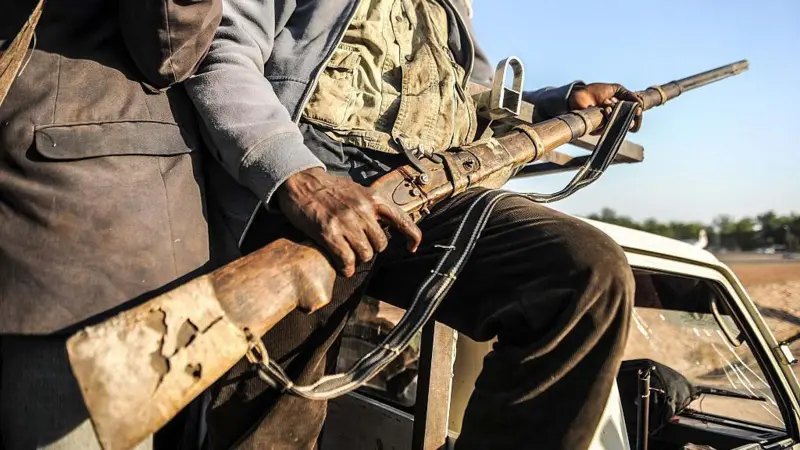Nigerian authorities have officially designated the Lakurawa armed group, notorious for flogging individuals caught listening to music, as a terrorist organization and have imposed a nationwide ban on its activities.
Lakurawa, a relatively new militant faction, has been conducting attacks against local communities in northwestern Nigeria and extending its reach across the border into Niger. Officials in Nigeria report that Lakurawa has ties to jihadist factions operating in Mali and Niger, with its members having settled in communities along the Nigeria-Niger border, marrying local women and recruiting young people.
This development exacerbates Nigeria’s ongoing security challenges, as the country is already engaged in battles against multiple armed groups, including the Islamist militant group Boko Haram and various kidnapping gangs.
On Thursday, the Nigerian government submitted documentation to a High Court in Abuja, outlining the group’s activities. The submission accused Lakurawa of engaging in acts of terrorism that include cattle rustling, kidnapping for ransom, hostage-taking, and attacks on high-ranking government officials.
Furthermore, Lakurawa has been charged with disseminating harmful ideologies in local communities, urging residents to disregard government authority, which has led to injuries, loss of life, and damage to property among innocent Nigerian citizens.
Emerging a few years ago in certain villages in Sokoto and Kebbi states, Lakurawa had previously garnered attention from authorities, but no action was taken. Initially, the group’s members claimed they would combat banditry and protect local populations from cattle thieves. However, their agenda escalated when they began inspecting people’s phones, punishing those found with music files by flogging them and deleting the content.
In the court filings, Nigeria’s Attorney-General and Minister of Justice, Lateef Fagbemi, emphasized that the group’s activities pose a significant threat to national security. Last year, military spokesperson Maj Gen Edward Buba linked the rise of Lakurawa to political instability in neighboring Mali and Niger, where military takeovers have occurred partly due to pressures from Islamist insurgencies.
In a decisive ruling, Justice James Omotosho declared Lakurawa a terrorist organization and extended the ban to similar groups across Nigeria, with a specific focus on the North West and North Central regions. This ruling grants the Nigerian government extensive powers to take robust action against Lakurawa.
Security agencies are now equipped with broad mandates to disrupt and dismantle the group’s operations, including conducting arrests, prosecutions, asset freezes, and enhancing surveillance. This situation may also result in public stigma and isolation for individuals associated with the designated group.
In northern Nigeria, there are growing fears of a situation reminiscent of the rise of Boko Haram in the late 2000s. Boko Haram, which translates to “Western education is forbidden,” has consistently targeted secular schools in its quest to impose its interpretation of Islamic rule in the region. The group gained international notoriety in 2014 when it kidnapped over 200 schoolgirls from the northeastern town of Chibok.






Leave a Reply